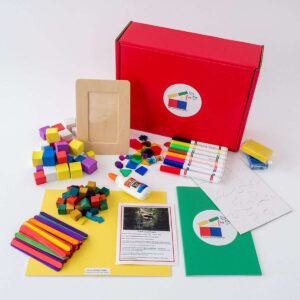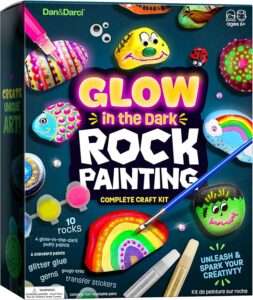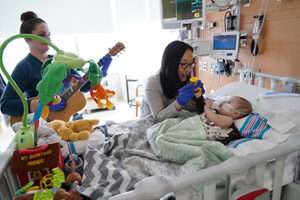Hospital Activity Kits Helping Kids Heal Faster
- Dr Owais Rafiq
- September 20, 2024
- 11:40 am

Children’s Hospital Activity Kits Helping Kids Heal Faster. Children facing medical procedures or hospital stays might feel anxious or afraid. Taking medicines and getting shots can make your child exhausted and irritated at hospital which makes it difficult for parents as well as for hospital staff to deal with the minor.
To overcome such circumstances a simple solution is introduced in healthcare setups which is PLAY! There is nothing more universal to childhood than play. Play also helps children learn to adapt to the healthcare experience. Medical play is a commonly used therapeutic activity in which activity kits are introduced to children who use medical themes and materials in their play. So, Let Us get into the details of which and how activity kits in medical setups will be helpful for your children.
WHAT ARE HOSPITAL ACTIVITY KITS?
These activity kits are used in hospital setups to make children feel less anxious before performing any surgery and medical procedure by the health care professionals. These kits include toys, role playing games, drawings, sketch books, scrap books, Surgi dolls etc. to manage children’s health care related anxiety.

HOW ACTIVITY KITS HELP KIDS HEAL FASTER?
Play and recreational activities are a natural part of child development. Because of Play they can learn, master experiences, and express themselves and cope with anxiety. Children experiencing hospitalization or injury may experience loss and isolation due to a sudden break from their routine. Activity kits consist of plays that are a crucial outlet for children to process emotions, express feelings, and maintain control in uncertain situations.
Such activities can help a child to cope with the fear, confusion, loss of control and isolation that can accompany a hospital stay or chronic illness.
- Emotional impact: Overcoming anxiety and stress in children and young people.
- Cognitive engagement: Encouraging learning through games like jigsaw and other fun learning projects in sciences.
- Social connection: Promoting social communication with caregivers as well as with peers enhances the sense of being supported by someone among children.

TYPES OF PLAYS IN THE HEALTHCARE SETTING: –
- Diversional/recreational play: commonly used for personal enjoyment, to combat boredom, and to facilitate normalization e.g. playing with puzzles, board games, coloring and making collages with kids.
- Developmentally supportive play supports all aspects of the child’s development. e.g. Playing with soft toys, building blocks legos and role-playing games
- Therapeutic play: facilitates expression, coping and mastery of the healthcare experience and helps to facilitate achievement of healthcare goals.e.g. playing with medical kits on stuffed toys and teddies, soft music and story telling via puppet shows.
SUGGESTED BEDSIDE ACTIVITY KITS: –
Followings are the bedside activity kits suggested depending upon the age of the children,
| Preschool-Age Children (2-5 years)
| School-Age Children (6-11 years)
| Adolescents (11 years and older)
|
| Stickers (large and easy to peel) | Individual paint sets (with brush)
| UNO cards or regular playing cards
|
| Play-Doh (1-2 cans)
| Play-Doh or Model Magic
| Drawing pad or adult coloring book
|
| Watercolor Paints (with brush)
| Travel games (Trouble, Connect 4, Yahtzee)
| Markers or colored pencils
|
| Bubbles
| 100-piece puzzle
| Word searches
|
| My Little Pony or Disney Princess sets
| LEGO kit
| Model Magic
|
| Crayola Crayons (8 pack)
| Stickers
| Stress ball
|
THE SCIENCE OF PLAY BEHIND REDUCING KIDS’ ANXIETY: –
Medical play, or therapeutic play, is one of the most time-tested forms of procedural support that child life specialists use as a nonthreatening way to familiarize kids with the health care environment.

Medical play helps specialists detect anxiety signs and address misconceptions about procedures. It helps patients understand the procedure, reducing nerves and potentially transforming their anxiety levels. It’s a game-changing effect of medical play on children and their families.
Research has shown that children who engage in therapeutic play show less signs of distress, lower pulse and less palm sweating. In some cases, clinicians are even able to reduce the amount of sedation needed. One study for example, noted a shorter period between surgery and the first time a child can empty his or her bladder.
Suggested To Read: A parent’s role in preparing child for Surgery
WHAT IS THE ROLE OF PRETEND MEDICAL PLAYS?
The healthcare setting is stressful for many people, especially children. Medical plays such as role-playing games are also introduced in the hospital settings to mitigate child’s anxiety and stress. In this role-playing game, children bring their soft toys and act as parents to the ‘sick’ teddies in a pretend hospital or clinic play setting.
EFFECTIVENESS OF PRETEND MEDICAL PLAYS: –
The practice of pretend medical plays has mostly positive outcomes, with lower anxiety levels and improved healthcare knowledge.
- It lowers the anxiety level.
- Increased the feeling of happiness regarding visiting a doctor.
- Enhances child’s mood.
- Lower their fear of visiting a doctor.

FUTURE OF ACTIVITY KITS IN PEDIATRIC CARE: –
Activity kits are the non-pharmacological pain-relieving process. They are feasible and help manage procedural pain during needle-related procedures.
- The demand for holistic treatment approaches in pediatric hospitals is on the rise. So, this concept has growing recognition in the healthcare department.
- The potential for developing recent activity kits that cater to various medical conditions and ages.
- The need of activity kits will increase which will help in expanding programs to more hospitals and even globally.
Dr Owais Rafiq
Subscribe to Dr Owais YouTube channel
For parenting advice, child health, symptoms, causes and treatment of illness in children.





